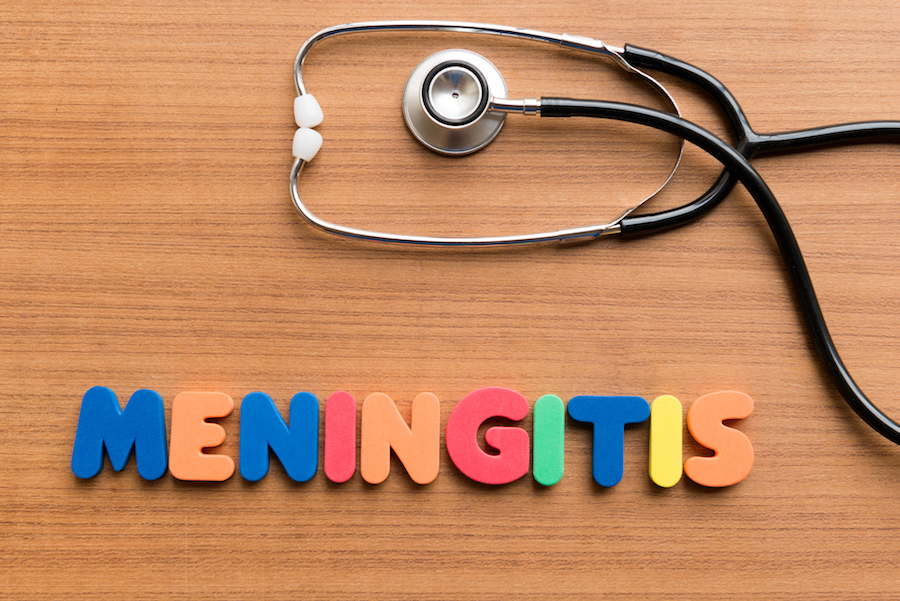World Meningitis Day: Here’s everything you need to know – from symptoms to vaccinations
It’s World Meningitis Day, which means there’s no better time to equip yourself with knowledge on this deadly disease.
Research shows that one in five 16-25 year olds either don’t realise or aren’t sure you can die from meningitis, and two in five (41%) don’t know you can lose a limb as a result of contracting the disease.
As a result, a new social media campaign called ‘#24youhavethepower’ has been launched to make young people more aware of how deadly meningitis can be, and the importance of being vigilant about its symptoms.
The campaign, launched by Pfizer, has enlisted several high-profile influencers, including Al Ferguson of The Dad Network, Mollie Bylett of Where’s Mollie? and vlogger and Instagrammer Josh Zerker to help spread the message to young people, many of which consume their news through social media.
“Although social media should be taken with a pinch of salt at times, it’s also providing an invaluable platform to spread very important messages, with extensive and instant reach,” says Bylett.
“As a social media ‘influencer’, I take my role quite seriously, and this campaign allows me to reach out to people that could well become affected by meningitis, and gives me an opportunity to share knowledge that they may not have otherwise stumbled across.”
Even if you aren’t following YouTube and Instagram’s brightest stars, it’s never too early (or late) to brush up on your health knowledge to keep yourself and your family safe. Here are some key facts that everyone should know about this potentially deadly infection…
So what exactly is meningitis?
Meningitis is inflammation of the membranes that surround and protect the brain and spinal cord, and some bacteria that cause the infection can also cause sepsis (blood poisoning). While anyone can get meningitis, certain groups are more at risk, including young children under the age of five, and young adults in the 15-24 age group.
The disease can kill within just 24 hours of the first symptoms appearing, which is why Pfizer’s campaign uses the hashtag #24youhavethepower.
What are the symptoms?
Meningitis and septicaemia often happen together, and it’s vital to be aware of all the symptoms. Early signs are often similar to flu and other viruses, resulting in a fever, headache, vomiting and limb pain.
Common symptoms of meningitis and sepsis can appear in any order, and some may not appear at all. Symptoms develop suddenly and can include:
Fever, cold hands and feet
Vomiting
Drowsiness and difficulty waking
Confusion and irritability
Severe muscle pain
Severe headache
Stiff neck
Dislike of bright lights
Convulsions or seizures
Pale, blotchy skin and a rash of tiny pinprick spots which can develop into purple bruising.
Do all your loved ones know the signs & symptoms?💛 Meningitis can affect anyone and recognising it early can save a life. Share this post & order some free wallet sized cards today to hand out to your friends & family:https://t.co/CTiqlQb03n pic.twitter.com/uGdV7CqQGh
— Meningitis Now (@MeningitisNow) January 11, 2018
How can I check for it?
To check whether a rash may be caused by septicaemia (blood poisoning caused by meningitis) experts suggest taking the ‘glass test’. You can do this by simply pressing the side of a clear glass firmly against the skin. A fever with spots that don’t fade under pressure (or a rash) is a medical emergency.
Meningitis Now warns not to wait for a rash, as one doesn’t always appear when a person has meningitis. If a person is displaying the symptoms, get medical help immediately – even if you can’t see a rash.

The symptoms can develop quickly
What causes meningitis?
The two most common causes of the disease are viruses and bacteria. Bacterial meningitis is usually more serious than the viral form, and 10% of bacterial cases result in death.
A third of those who survive are left with life-changing injuries which can include brain damage, hearing and sight loss, and where septicaemia has occurred, loss of limbs and scarring.
The most common form of bacterial meningitis in children and young adults is meningococcal, which is caused by bacteria carried in the throats of one in five adolescents.

The bacteria can be spread through kissing
People normally carry the bacteria without it causing serious health issues, but for reasons not fully understood, it can sometimes attack the body’s defences, allowing infection to spread through the bloodstream to the brain, causing meningitis.
Young adults are most at risk
The Men ACWY jab is free to young adults – get all the info here https://t.co/DnVqDohMWe
— Meningitis Now (@MeningitisNow) April 14, 2018
The bacteria that causes meningitis can be spread through common adolescent behaviour like communal living and kissing, and health experts have warned that university freshers are particularly at risk, because they mix with other students and often live in close proximity.
Although death rates from the disease are higher for teenagers and young adults, vaccines are available to give protection against some forms of the disease. There’s no single vaccine that helps protect against all the bacteria that can cause meningitis, but currently in the UK, infants are offered a Men B and Hib/Men C vaccine, while adolescents and young adults are offered a Men ACWY vaccine as part of the routine immunisation schedule.
Dr Tom Nutt, chief executive of the charity Meningitis Now says: “It’s vital to reach out to young people directly, as well as through their parents and educational settings, if we’re to significantly change the perceptions and attitudes this group has towards the killer disease.”
The Press Association
Latest posts by The Press Association (see all)
- Maple Cinnamon Granola - January 8, 2025
- 8 things your feet can tell you about your health - January 8, 2025
- 9 ways to look after your emotional health better in 2025 - January 7, 2025
- EastEnders fans to vote on storyline for the first time in 40th anniversary week - January 7, 2025
- Aldi beats rival Lidl as cheapest supermarket of 2024 - January 6, 2025





















